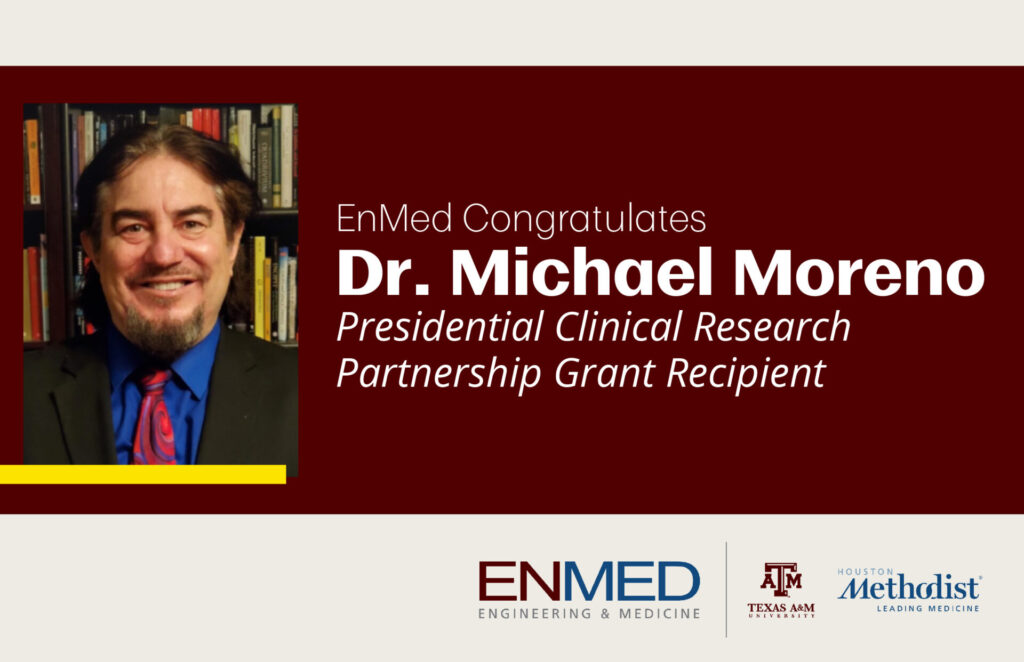EnMed’s director of innovation, Dr. Michael R. Moreno, recently received a Presidential Clinical Research Partnership (PCRP) Grant for his work to improve device-based therapies for patients in end-stage heart failure. The grant provides funding of up to $200,000 over a two-year period to stimulate new collaborations between Texas A&M University researchers and clinical partners. Moreno, who also is an associate professor in the J. Mike Walker ’66 Department of Mechanical Engineering, is collaborating with Dr. Mahwash Kassi, a cardiologist from Houston Methodist Hospital on the project.

“Heart disease is the leading cause of death in the United States,” Moreno said. “The preferred treatment for end-stage heart failure is a heart transplant, but unfortunately, while there are typically around 300,000 people suffering from end-stage heart failure at any given time, there are only 3,000 donor hearts available. The critically limited donor pools, and high risks associated with transplantation, leave many depending on device-based alternatives such as Left-Ventricular Assist Devices (LVAD) to extend their lives.”
According to Moreno, though LVADs have the potential to extend the patient’s life, their use has been correlated with a number of post-implant complications, with 80% of patients experiencing at least one adverse event such as stroke, right ventricular failure or gastrointestinal bleeding within two years. There is evidence that these complications may be the result of the impact on blood flow patterns, which vary depending on how the device is deployed during surgery. He believes there is potential to reduce the risks associated with LVAD therapy by optimizing the device deployment based on patient-specific needs.
“The goal of this project is to use patient-specific imaging data to develop a computational model that enables us to investigate the correlation between the way the device is deployed and the effects the deployment has on patient outcomes,” he said. “This will then be incorporated into a software-based surgical planning tool that will allow surgeons to simulate deployment options as part of the surgical planning process and develop a plan that is optimized for the patient’s specific conditions. This could improve the quality of life of LVAD-patients and reduce the economic burdens associated with post-implant complications.”
Ultimately, Moreno says results from his project will help improve the reliability of LVAD therapy for future patients and improve its potential as a viable alternative to heart transplants.
The Presidential Clinical Research Partnership Grants program is part of the President’s Excellence Fund. The program supports the development of long-term partnerships between Texas A&M and its clinical affiliates and partners, leading to the highest level of health for all Texans.